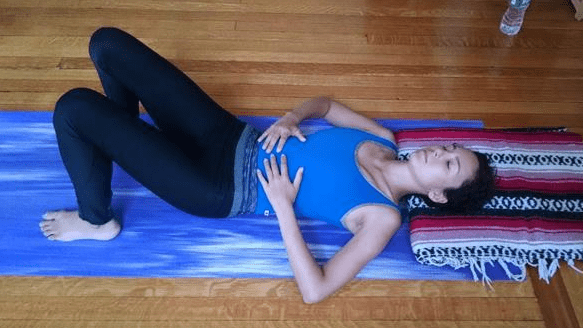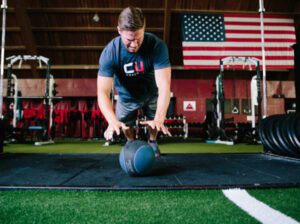Athletes spend a lot of money and effort trying to rack up advantages before a competition—from tubs of protein powder, to $100 compression shorts and amino acid smoothies. Want a simpler, cheaper, and healthier way to get ahead? Go to sleep an hour early. In today’s day and age, it’s incredibly easy to stay up late and waste valuable hours of rest, but getting enough sleep is crucial for athletic performance. Studies have found that good sleep can improve speed, accuracy, and reaction time in athletes, so go to sleep right now!
OK, that might be a little rash, but the point still stands. Whether you’re an Olympic athlete, a weekend warrior, or a lunch-break walker, getting enough sleep is crucial. Continue reading to learn why sleep is important and to find some CoachUp procured tips on how to get more of it.
How much sleep do athletes need?
According to the National Sleep Foundation, most people need between seven and nine hours of sleep a night. However, if you’re a training athlete, that may not be enough. For athletes, there is more than just eating, going to school, and doing homework—there is also the stress of grueling practices. Thanks to these compounding elements, the body needs more time to shut down, re-group, and heal. If you aren’t able to go to bed earlier, try an afternoon nap after school for an hour before practice.
How does sleep affect athletic performance?
This part extends beyond the realm of sports, but is still incredibly important nonetheless. People often overlook the importance of sleep. Not getting enough sleep doesn’t only make you tired the next day, but it also plays a large role in your body’s recovery process. Your body is able to best repair itself during sleep, so getting less of it invariably leads to lesser recovery.
Sleep deprivation reduces your body’s ability to store glycogen, which is energy that you need during endurance events and even just to stay awake throughout the day. With limited energy, you’ll display worse decision making and reflex skills. Studies have shown that athletes who don’t get enough sleep are worse at making split-second decisions and are far less accurate.
Then, to top it all off, you’ve got hormone changes. Not getting enough sleep can increase levels of cortisol, a stress hormone that can slow down healing, increase the risk of injuries, and worsen memory. It also lowers levels of growth hormone that helps repair the body. Let’s do some simple math with real quick: not only are you gaining hormones that hurt your system, but are also losing the good ones when you don’t sleep!
Inch By Inch Improvement
So, you want to fix your sleep? Now that you’ve read this article, you’re probably convinced of its value and are ready to subscribe to consistent sleep. Here’s how you can actually achieve your new sleeping goals, which will lead to achieving your goals on the field as well.
First, do your best to get on a regular schedule. This simply means going to bed and getting up at the same time every day. It may not seem like it, but getting to bed on time every day is the hardest part. This means no Facebook, no Twitter, no games, just sleep! Let your body get used to its new bed time and we promise you’ll see improvements. Not only will you start walking up feeling refreshed, you’ll actually be ready to begin your day.
Next, you’ll want to avoid certain substances, especially when close to competition. This includes alcohol and caffeine. Further, we advise you to avoid sleep medication or other over-the-counter sleeping aids, as they will linger and effect your next day’s performances. For those that can’t fall asleep quickly, cut back on screen time. That means no looking at your phone in bed under just that dim light. It causes eye strain and stimulates the rest of the body, preventing it from shutting down properly. Those texts will still be there in the morning!
Remember that even when you’re not in training, sleep should still be a priority. Getting enough sleep doesn’t only help with athletic performance. It can also increase your immune system, reduce pain, improving your memory, and help you lose weight. Ultimately, no stimulant, internet cheat code, or diet exercises will have as much effect on your athletic performance as an extra hour of sleep! It’s cheap, it’s healthy, and you should no longer neglect it!

With our 100% money-back guarantee and vetted coaches, anyone can achieve their full athletic potential. CoachUp is the safest and easiest way to find a coach for personalized training. Find your perfect coach today and become the athlete you want to be!
How useful was this post?
Click on a star to rate it!
Average rating 4.8 / 5. Vote count: 5
No votes so far! Be the first to rate this post.



